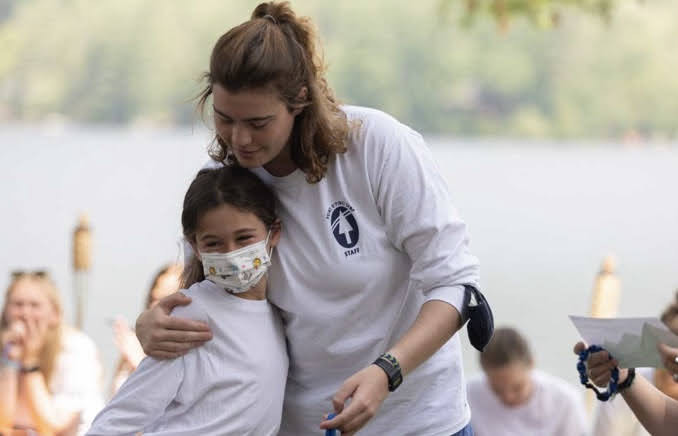Bridge Experience puts College of Agriculture and Life Sciences’ student learning at the forefront
The College of Agriculture and Life Sciences is focused on providing hands-on, experiential learning opportunities to students of all the college’s majors through the Bridge Experience Program.
For Lou Jean Groundwater, the Bridge Experience Program meant discovering new experiences as a director for wilderness adventure and discovery at a summer camp in summer 2021.

Carly Campbell wants to be an agriculture teacher.
The junior from Loudoun County, Virginia, grew up on a farm with horses, cows, and goats and got involved with 4-H when she was just 9-years-old.
And ever since her time in Virginia 4-H, she has known what she wants to do.
With the Bridge Experience Program at Virginia Tech and in the Virginia Tech College of Agriculture and Life Sciences, Campbell got inside the classroom through an internship at Carroll County High School and worked with their agriculture teacher for a semester, putting her a step closer to realizing her dream. Over her semester in the classroom, she gained valuable insight into her desired profession by working hands-on with the youth.
The College of Agriculture and Life Sciences is focused on providing these hands-on, experiential learning opportunities to students of all the college’s majors through the Bridge Experience Program. So far, the Department of Agricultural Leadership and Community Education, the Department of Human Nutrition, Foods, and Exercise, and the Department of Food Science and Technology are part of the initiative.
The Bridge Experience Program is a Virginia Tech initiative run through the Center for Excellence in Teaching and Learning and supports experiential learning efforts that are put forth inside and outside of the classroom. This student learning initiative empowers disciplinary faculty to implement a bridge experience requirement connecting students’ disciplinary knowledge and skills to an experience aligned with their post-graduation goals using research-based learning processes.
As one of the early adopters of the program, the Department of Agricultural Leadership and Community Education brought many of their existing experiential opportunities into the fold, including internships with Virginia Cooperative Extension, and expand opportunities in the classroom, with local community organizations, and with industry.
Many students already have internships and this is a way to have these opportunities align and expand upon classroom experiences, said Donna Westfall-Rudd, an associate professor in the Department of Agricultural Leadership and Community Education.
“We consider ourselves the ‘People Department’ as we are heavily involved in the social sciences. We especially feel that these experiences are critical for our students and want to provide as many of them as possible,” Westfall-Rudd said.
For Lou Jean Groundwater, a senior from Ashburn, Virginia, this meant discovering new experiences as a director for wilderness adventure and discovery at a summer camp in summer 2021.
“As a director, I was able to use my experiences and education to create programs and lessons,” said Groundwater, who is majoring in agricultural science with a concentration and community leadership development. “I was also able to gain new experiences to bring back to Virginia Tech. The program allows students to grow and learn. It also makes students step out of their comfort zone and learn new skills.”
A typical bridge experience includes undergraduate research, internships, and other place-based experiences. Students will take initiative to identify the right experience for their personal aspirations and goals, be mentored as they learn, reflect on their individual growth, and showcase their learning. Virginia Tech’s goal is for 50 percent of undergraduate degrees to include a bridge experience requirement in five years.





